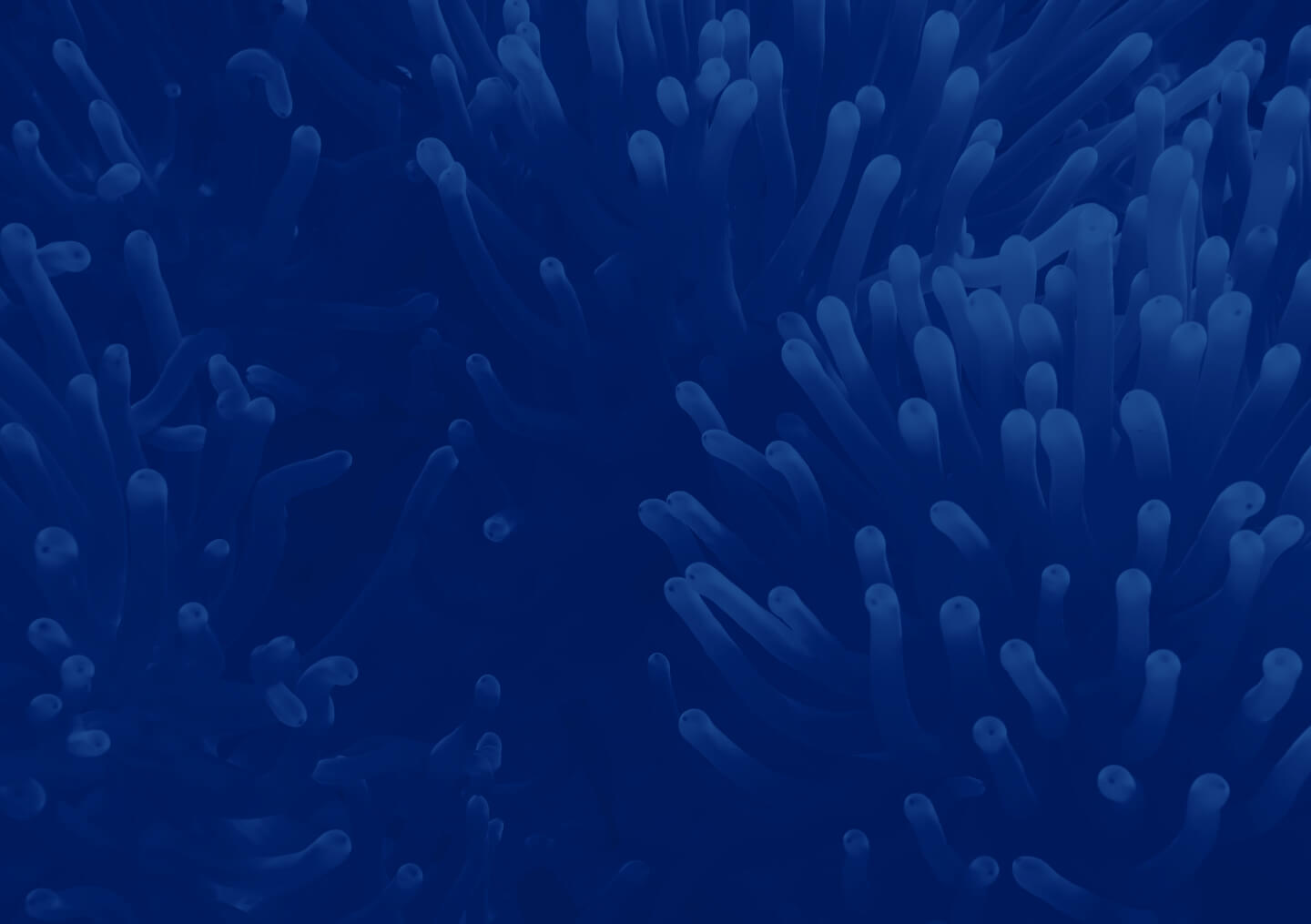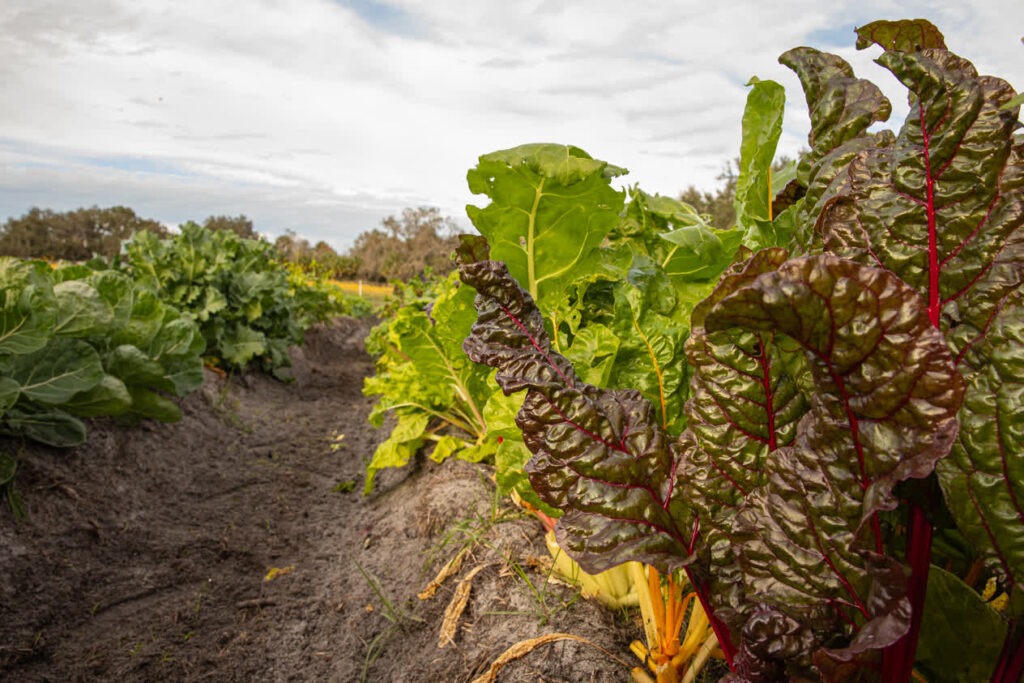Mote Marine Laboratory & Aquarium is proud to announce the Beginning Farmer Education Program in partnership with UF/IFAS Extension Sarasota County with the goal of creating the future Florida workforce in food, sustainable farming, and natural resources. The 8-week program provides the next generation of farmers with hands-on work experience and practical education under the mentorship of Mote scientists, extension educators, successful entrepreneurs, and local producers.
Many Florida communities have a need for access to sustainably grown, healthy, nutritious food, including seafood, as year after year, wild fisheries continue to fall short of feeding Earth’s growing population—with nearly 60% fished to capacity and 34% overfished.
“Mote continues to successfully demonstrate how to raise seafood away from the coast while recycling 100% of the salt water—and we’ve built upon that core technology to do much, much more,” said Manager of Mote’s Marine & Freshwater Aquaculture Research Program, Dr. Nicole Rhody. “Mote’s progress reveals how precisely our research targets urgent, pressing questions in our national conversation on food security and sustainable seafood resources. We hope this program combines what we know about taking environmentally-friendly aquaculture to a commercial scale and how we can apply those methods by enhancing the success of new farm start-ups, to help increase access to more locally grown foods.”
The Beginning Farmer Education Program participants gain practical skills from agricultural extension agents in areas such as crop cultivation, soil health, irrigation, pest and disease control, equipment operation, and harvesting techniques. Participants can learn more from Mote scientists about aquaponics—which links together aquaculture and hydroponic vegetable production—to raise fish and grow edible plants in a symbiotic, closed-loop system. Participants will also gain an understanding of different business models, along with opportunities to connect with local supply chains and network with schools, local farmers, restaurants, etc.
The 200-acre Mote Aquaculture Research Park (MAP), one of eight Mote campuses was established in 2001 to pioneer the development of sustainable aquaculture technologies working in land-based recirculating systems and to address the need to develop a viable, domestic aquaculture industry in the United States. This campus includes the Ron and Marla Wolf Aquaponics Center established to expand Mote’s successful research with marine aquaponics. Aquaponic systems transfer nutrient-rich water from fish tanks through filtration systems to plant raceways, where the nutrients fertilize the plants. Next, the cleaned water is returned to the fish—ready to begin the cycle again. These remarkable systems can produce two types of foods (fish and vegetables) from just one nutrient source, the fish food. Most aquaponic farming involves freshwater, and Mote has been working to expand options for sustainable, affordable, saltwater production that can be done in closed recirculating systems away from the coast.
“This program is a low-risk, high-learning environment that allows new farmers to make mistakes and experiment with different growing techniques before starting their own business,” said Sustainable Agriculture Agent at UF/IFAS Extension Sarasota County, Dr. Rod Greder.
Participants receive access to land, aquaculture facilities, and supplies. Here they can design, implement, learn and adjust plans for their own future farms using a micro plot that can be expanded to a larger scale plot..
“This project is a wonderful collaboration that is allowing us to engage in activities central to Mote’s mission of innovative research, education and outreach,” said Rhody. “We hope this program will result in more locally grown and aquaculture-derived products coming to the Sarasota market with aspirations to share the technology developed at Mote on a national level.”
Mote and UF/IFAS Extension Sarasota County began prepping the Mote land six weeks before contacting participants to begin the program. At the beginning of October, planting began, which included produce such as Swiss chard, collard greens, tomatoes, beets, okra, herbs, marigolds, and more. Harvesting is expected sometime end of January into early February just in time for Mote’s annual Farm to Fillet event.
The event will be held on Sunday, February 11, at 12:30 p.m. at MAP (12300 Fruitville Road, Sarasota, FL 34240). Guests will enjoy an amazing lunch featuring fish and vegetables grown at MAP through Mote’s Marine & Freshwater Aquaculture Research Program, which develops innovative technologies to sustainably produce seafood that can help feed the world, and to restock depleted recreational and commercial fisheries.
Mote scientists have been hard at work rearing red drum and sea vegetables for the event (more information is available at mote.org/farm) in our state-of-the-art sustainable saltwater aquaponics system, as well as mentoring our Beginning Farmer Education Program in partnership with UF/IFAS. Chef Paul at Mattison’s City Grill will prepare the lunch, and Dr. Rhody will inform the guests about the importance of sustainable farming.
After enjoying the meal, guests are invited to an exclusive, behind-the-scenes tour of Mote’s rapidly growing research park and hear directly from Mote scientists about their work advancing sustainable aquaculture technologies to feed our growing population, restock depleted fish populations, mitigate red tide and restore Florida’s coral reef.
The Beginning Farmer Education Program is funded by state grants, membership fees, philanthropy, co-op sales and community/government support.
To apply to be part of the Beginning Farmer Education Program, contact instructor Dr. Rod Greder, Sustainable Agriculture Agent at UF/IFAS Extension Sarasota County, at rgreder@ufl.edu.
About Mote Marine Laboratory & Aquarium: Mote Marine Laboratory & Aquarium has a nearly 70-year legacy as an independent, nonprofit, 501(c)3 global marine research and science education institution. Mote began in 1955 and flourished on the foundational pillars of “Passion, Partnership and Philanthropy” – the passion of a single researcher, Dr. Eugenie Clark, her partnership with the community and philanthropic support, first of the Vanderbilt family, later with the significant support and guidance of the William R. Mote family, and today through donations by thousands of individuals who believe in the mission of Mote.
Today, Mote has grown into eight campuses stretching from Tampa Bay to Key West, with a ninth new campus, the Mote Science Education Aquarium (Mote SEA), currently under construction. Mote has more than 25 diverse world-class research programs studying oceans locally and internationally, with an emphasis on positively impacting conservation and sustainable use of marine resources. The current Mote Aquarium in Sarasota showcases Mote Research and is open from 9:30 a.m. to 5 pm, 365 days a year. Learn more at mote.org.
About UF/IFAS: The mission of the University of Florida Institute of Food and Agricultural Sciences (UF/IFAS) is to develop knowledge relevant to agricultural, human and natural resources and to make that knowledge available to sustain and enhance the quality of human life. With more than a dozen research facilities, 67 county Extension offices, and award-winning students and faculty in the UF College of Agricultural and Life Sciences, UF/IFAS brings science-based solutions to the state’s agricultural and natural resources industries, and all Florida residents. ifas.ufl.edu | @UF_IFAS


